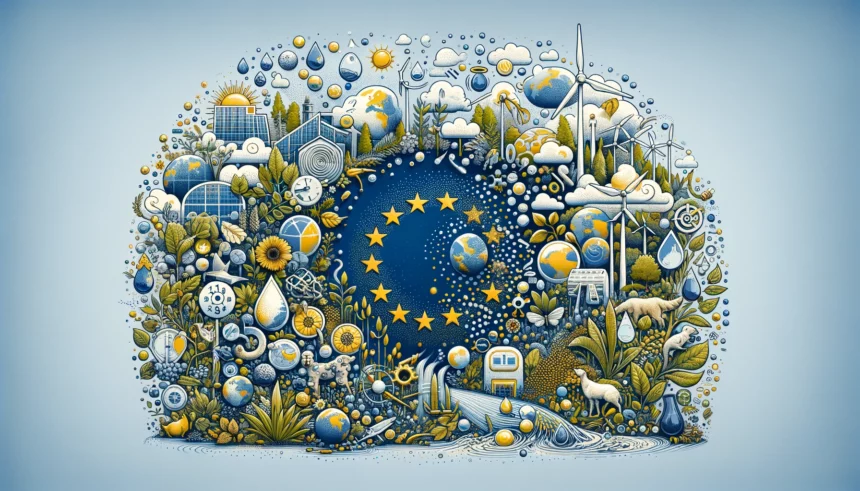Listen to the article now:
The recent mid-term review of the 8th Environment Action Programme (EAP) provides a mixed bag of optimism and challenges as the European Union (EU) strives toward its 2030 climate and environmental targets. Grounded in the ambitious framework of the European Green Deal, the review underscores a pivotal moment for the EU, showcasing that the road to sustainability, while fraught with hurdles, is navigable with rigorous implementation and commitment. Here’s what we’ve learned from the review and what it means for the future.
Attainable Targets with Full Implementation
At the heart of the review is a reassuring message: the EU’s objectives under the European Green Deal are within reach. This optimistic outlook hinges on the full and timely implementation of planned actions. Key to this ambition is the array of legislation aimed at achieving climate neutrality, notably the EU Climate Law, the comprehensive Fit for 55 legislative package, and the 2021 Climate Adaptation Strategy. These legislative measures lay the groundwork for a transformative journey towards a sustainable future.
Steady Progress in Reducing Emissions
Encouragingly, the EU’s domestic net greenhouse gas (GHG) emissions have seen a significant decline, dropping by 32.5% in 2022 compared to 1990 levels. This progress is a testament to the EU’s commitment to climate action and sets a benchmark for global efforts in mitigating climate change.
Advancements in Zero-Pollution and Biodiversity
The zero-pollution action plan, a cornerstone of the European Green Deal, has seen most of its initiatives delivered. This includes crucial revisions to EU legislation on air, water, and industrial emissions, alongside the proposal for a pioneering Soil Monitoring Law. However, challenges persist, with some EU groundwaters still polluted with nitrates and about two-thirds of the EU’s agricultural soils not in good health.
On the biodiversity front, most actions outlined in the biodiversity strategy have been completed, with notable increases in protected land and marine areas. Yet, the decline in common and farmland bird populations, along with the sharp decrease in pollinators, signals an urgent need for continued and enhanced efforts.
Water Scarcity and Land Take: Emerging Concerns
Water scarcity, affecting nearly one-third of the EU population annually, emerges as a pressing concern, exacerbated by climate change and extreme weather events. Similarly, land take poses a significant threat to biodiversity and the EU’s climate mitigation capabilities, highlighting the intricate relationship between environmental protection and land use policies.
Disproportionate Impact on Vulnerable Groups
The review also sheds light on the disproportionate effects of climate change, environmental hazards, and health-related risks on vulnerable and lower socio-economic groups. This emphasizes the need for inclusive policies that address the intersection of environmental action and social justice.
The Road Ahead
While the 8th EAP mid-term review presents a promising path toward achieving the 2030 climate and environmental targets, it also underscores the immense challenges that lie ahead. The success of the European Green Deal depends on the unwavering commitment of EU member states to fully implement the planned actions. The journey towards a sustainable future is not without its obstacles, but with concerted effort and determination, the goals of the 8th EAP are within reach, paving the way for a greener, more resilient Europe.
















